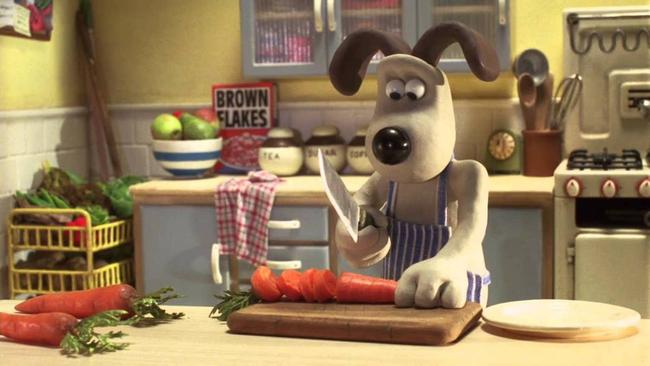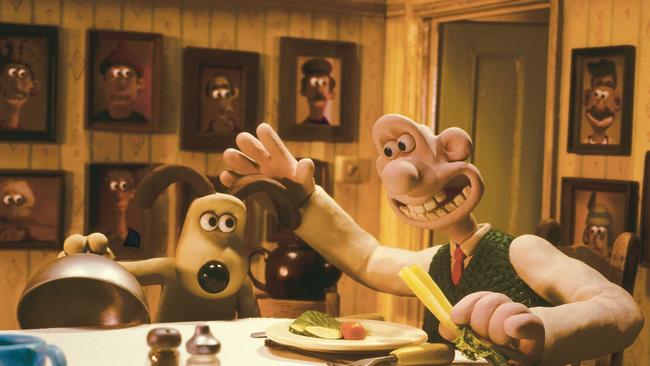The foods to eat and the ones to avoid for healthy teeth
A report has revealed the extent of our bad oral hygiene. Here’s what we should be doing.

A report has revealed the extent of our bad oral hygiene. Here’s what we should be doing.
According to this year’s Great British Oral Health Report, one third of the population is suffering from untreated tooth decay, with figures from a Public Health England survey showing that an average 31.5% of men and 23.6% of women have decay on an average of two teeth. Left untreated it can cause dental caries (holes in the teeth), gum disease or dental abscesses.
Poor oral hygiene habits and a lack of diligence with dental appointments - 53% of people had not had a routine check-up in the past year - play their part, but so does our daily diet. Sugary foods are notoriously bad for the teeth, allowing harmful bacteria to thrive, and acidic products such as fizzy drinks change the pH level of the mouth and encourage erosion. Less likely culprits include foods we think of as nutritious and healthy but which might be storing up problems for our teeth.
“What you eat or don’t eat can make a difference to your oral health,” says Dr Nigel Carter, chief executive of the Oral Health Foundation. “
And sometimes the foods we think are good for our teeth and gums are poor choices.”
Here we ask leading dental experts what are the best and worst diet habits for our teeth.
1. Stick to regular meals and no snacks
Grazing is generally not good for the teeth. “Unlike two or three regular meals a day, constant snacking does not allow the teeth to recover from the acid produced when the bacteria in dental plaque meets with food,” Carter says. “It takes up to an hour for the acid level in the mouth to return to normal after eating, and saliva flow is essential to help neutralise the acids. If you keep snacking this doesn’t happen.”
As the sugar and starch from food combine with the bacteria in your mouth to form acid, it can lead to issues such as cavities. “If you must eat sugary foods, restrict them to meal times only,” says Faizan Zaheer, a regional clinical director at Bupa Dental Care. “And avoid sipping sugary drinks between meals as it has the same effects as snacking on food.”
2 Be wary of kombucha and smoothies
We all know that fizzy, sugary drinks are baddies when it comes to dental health but are probably less aware that drinks we think of as healthy choices can be just as damaging. Orange and other fruit juices are highly acidic and can cause erosion over time.
“Smoothies are often even worse as they are thick and gloopy, sticking to the teeth and leaving the sugar and acids in contact for longer,” Carter says. “And while the trendy fermented drink kombucha may be lower in sugar than fizzy drinks, it tends to have very high acidity levels.”
3. It’s good to munch on raw carrots and celery
Crunchy veggies are great for teeth because the chewing required to eat them helps to gently scrub and clean the surfaces of teeth and stimulate the flow of saliva, which gets rid of food particles and bacteria. Researchers at the University of Illinois at Chicago College of Dentistry billed celery as “probably the closest thing to nature’s dental floss”, suggesting its fibrous strands and high water content simulate tooth brushing.

Carrots are another good choice, being a source of plaque-attacking keratin as well as vitamin A, a key nutrient for healthy gums and tooth enamel. “Raw vegetable crudites are packed with many of the most important minerals and vitamins for your oral and gum health,” says Dr Reena Wadia, a principal periodontist at RW Perio on Harley Street and an associate specialist at King’s College London, Guy’s Hospital. “They won’t replace good oral health routines but munching on raw veg is a good habit.”
4. Fruit is fine in moderation
A 2021 government report, Delivering Better Oral Health: an Evidence-Based Toolkit for Prevention, revealed that high daily intakes of fruit - which can be acidic and sugary - over an extended period “was one of the risk factors for severe erosive tooth wear in some adults referred for specialist management of erosion in dental hospitals”. Lemons, oranges and grapefruit are the most acidic fruits, although the report said that “most fruits may be erosive other than bananas or avocados”. National nutrition surveys in the UK over the past nine years suggest that most children and adults don’t consume enough fruit and vegetables for a healthy diet “and are not at risk of accelerated tooth wear because of excessive fruit consumption”, states the report.
5. Purely plant-based diets might not be the best move
Some studies have linked vegetarian diets with a high risk of dental caries, while others have suggested low intakes of vitamin B12, found in meat and dairy, in plant-based eaters is associated with worsening gum health. A report in the British Dental Nurses’ Journal also suggested that non-dairy plant-based milk alternatives are often sweetened “with non-trivial quantities of added sugar” and not all are fortified with calcium, which is bad news for the teeth.
“There is a statistically higher consumption of carbohydrates, including sugars, for some vegans, vegetarians and plant-based eaters and this can lead to an increase in dental erosion and dental caries,” says the dentist Dr Richard Marques, who has a practice in London’s Harley Street area.
“With a reduced variety of foods there can also be a lower intake of calcium and other minerals that are important for strong teeth.”
6. Avoid gummy vitamins
They look like a healthy addition to the diet, but in addition to vitamins, the gummy supplements often contain sugars and citric acid and are little better for us than sweets, says Zaheer. Researchers reporting in the British Dental Journal last year found that it took an average of four minutes of sucking on a single vitamin gummy for it to dissolve, during which time the saliva’s pH was continuously below the critical level of 5.5 for teeth health.
In some the pH dropped as low as 4.1. Considering most manufacturers recommended consuming 2-4 vitamin gums per day, the researchers warned they “introduce a considerable risk of developing erosive tooth wear, while the sugars may increase the risk of caries”.
If you take supplements, stick to the regular pills and capsules. “Vitamin tablets have a lower sugar content than gummies and therefore pose less risk of damaging your enamel or causing unwanted cavities,” Zaheer says.
7. Eat a small piece of cheese - preferably Jarlsberg - daily
Dental studies have shown that eating cheese lowers acidity levels in the mouth better than either milk or sugar-free yoghurt, helping to protect teeth against cavities. Carter says that cheese is slightly more alkaline, meaning it helps to neutralise plaque acids that form after eating other foods. “The acids formed by the sugar in foods lowers the pH level in our mouths for about 40-50 minutes after a meal,” Carter says.

“By eating a small piece of cheese after a meal you can speed up the return to a pH balance that is beneficial for teeth.” Jarlsberg cheese might be the best choice. Particularly rich in vitamin K2 compared with some other cheeses, it was recently shown to boost levels of osteocalcin, a hormone that is associated with strong teeth, more effectively than a similar amount of Camembert. A couple of slices (57g) is enough to produce these benefits. “The calcium in cheese will also naturally strengthen your teeth,” Zaheer says.
8. Consume leafy greens alongside your starchy carbs
“Carbohydrate foods that are high in starch, such as pasta, rice and potatoes, tend to stick to the teeth, which can provide a source of energy for bacteria,” Zaheer says. “When you eat them, your saliva converts the starches to sugars which, over time and in high consumption, can lead to an increased chance of developing cavities.” To mitigate this risk, make sure any starch-based meals are broken up and balanced out with leafy greens and vegetables.
9. Drink a glass of water after eating . . .
After eating any food it is good practice to drink water. “I would recommend drinking at least one glass of water to cleanse the teeth and help to dislodge food particles that linger in the mouth after eating,” Carter says. “Water is also good for general hydration and will help to keep saliva levels in your mouth high, helping prevent tooth decay.”
10. . . but opt for still over sparkling
Last year’s government report listed carbonated sparkling water with fruit flavouring or lemon juice as having “high erosive potential” for teeth. Unflavoured water (still and sparkling) is considered to have a neutral effect. “Flavoured carbonated water is often overlooked as a risk for teeth and a lot of people drink it assuming it has no effect,” Wadia says. “Adding lemon juice, which is acidic, raises the erosive risk.”
11. Chew sugar-free gum
A 2020 review of 12 studies by dental researchers at Guy’s Hospital in London compared the level of caries in children who chewed sugar-free gum containing the sweetener xylitol with those who did not. Results showed the sugar-free gum-chewers had 28 per cent fewer dental caries. “The action of chewing increases saliva flow which helps to neutralise acids in the mouth and prevent decay,” Carter says. “But sugar-free gums containing the sweetener xylitol have also been shown to have additional anti-decay benefits for the teeth, so are worth considering.”
12. Drink 1-3 cups of black tea daily
Ordinary builders’ tea is surprisingly good for teeth as it contains natural fluoride from the tea leaves. “Black tea specifically is good for oral health because fluoride levels are higher,” Carter says. “Of course, adding sugar will negate these effects and make it bad for your oral health.” Don’t overdo it as both black tea, green tea and coffee have the potential to stain teeth; 1-3 cups daily is sufficient. “If you’re concerned about discolouration and staining, try drinking tea through a heat-safe straw,” Zaheer says.
13. Wait 60 minutes before brushing your teeth
It usually takes at least 30 minutes for our mouth to return to a neutral pH after eating so it is wise to wait an hour before brushing your teeth. “Don’t brush straight after eating, especially if you have consumed acidic foods, as you will risk damaging the teeth, specifically the enamel,” Carter says.


